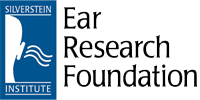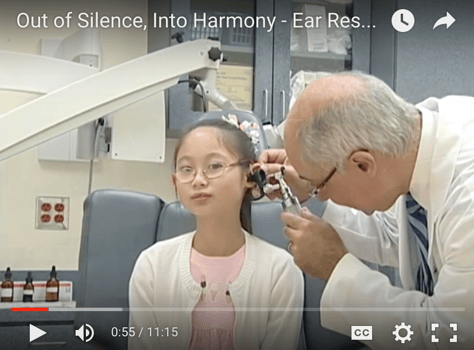Fellowship
The Ear Research Foundation (ERF) established one of the first Clinical Fellowship's in the field of Otolaryngology in the United States. The Fellowship is in its 33rd successful year and is a one-year program for board eligible Otolaryngologists. The post-graduate Fellows gain specialized training and cutting edge experience in the field of Otolaryngology.
The ERF Fellowship is a very active program with a great deal of "hands-on" training. Under the auspices of Dr. Herbert Silverstein, Dr. Seth Rosenberg and Dr. Jack Wazen, each Fellow treats private patients in the Florida Ear and Sinus Center and indigent patients referred by the Ear Research Foundation. They also assist in surgeries. Fellows take emergency room call on a rotating basis with other ENTphysicians in Sarasota and for Dr. Silverstein. Each Fellow also conducts research and documentation for several research papers during their tenure.
Fellows have access through the ERF to a complete microsurgical laboratory. They also have access to an audiovisual and scientific library for ear physicians and surgeons.
The History of the Ear Research Foundation Fellowship
Dr. Herbert Silverstein founded the Ear Research Foundation (ERF) in 1979 with three main goals: research, education and treatment through community service. As part of the education commitment, the fellowship program was established in 1983.
Dr. Jack Wazen, the first fellow, was sent by the late Dr. Max Abramson of Columbia University to be trained for an academic position at Columbia Medical Center. Upon the completion of his fellowship, Dr. Wazen went on to become the director of Otology/Neurotology at Columbia for a period of ten years. Dr. Wazen has since returned to Sarasota and joined the Silverstein Institute as a partner in 2006.
As of 2015, 41 fellows have graduated the one-year program. Some years, two fellows would be in training at the same time. During the last few years the program has remained booked two years in advance.
Over the years some fellowships have become certified and require a two-year commitment. These fellowships are essentially an extension of the residency program. The Ear Research Foundation decided not to apply for certification and will remain a one-year program.
The SERF’s Up group was formed in 1985. This acronymn stands for the Society of Ear Research Foundation Fellows. SERFs Up tries to meet twice a year; at the AAO and in another place for a weekend of educational interchange and fellowship.
The ERF Clinical Fellowship is a very didactic year and provides the fellows with a great deal of hands-on surgery under the supervision Dr’s Silverstein, Rosenberg and Wazen. The fellow also has his or her own clinic two days a week to see both private and indigent patients.
One evening per week there is a fellow teaching conference during which we discuss difficult cases and various research projects. There is open communication with the teaching staff. Research is both encouraged and performed by each fellow in the form of record review and writing as well as presenting their project at a national meeting. At times, prospective studies are being conducted.
Since the inception of this program, over 200 scientific papers have been published by the fellows and staff.
All the fellows have graduated to become contributing members of the medical community.
Many are in the Triological Society and the American Otological Society. One is writing his thesis now. Ten are in academic medicine. Many others are in private practice with a University affiliation.
Many of the graduates give teaching courses at the AAO. Some of them have achieved national recognition. Dr. Raleigh Jones has been Chairman of Department of Otolaryngology at the University of Kentucky since he graduated the fellowship in 1988. Dr’s Jack Wazen, Tom Haberkamp, Michael Seidman, Michael Hoffer, Eric Smouha, Hayes Wanamaker, and Seth Rosenberg are all well-known nationally.
With the changes in managed care that emphasize cost effectiveness and both minimal and conservative surgery, fewer skull base cases are being performed, though Dr. Wazen still does numerous Acoustic Neuromas each year. Chronic ear surgery, stapes surgery, Baha, Cochlear Implant, minimally invasive office surgery, and inner ear perfusions with gentamicin and dexamethasone make up the majority of cases now.
In summary, the ERF program has been very successful in fulfilling its mission and will continue to offer the program as long as there is an interest in a non-certified one-year fellowship program.








